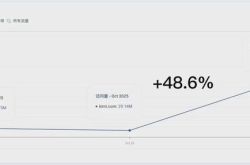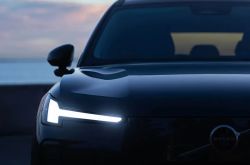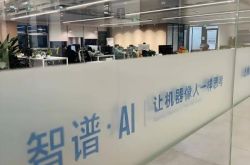Huawei "Betrays" Its Allies, Xiaomi and Others Are Stunned
![]() 06/24 2024
06/24 2024
![]() 721
721
At a crucial moment when Tencent (00700.HK) openly challenged the game distribution channels, Huawei chose to abandon its allies.
On June 19, Tencent's official website for "Dungeon Fighter Online: Origin" (DNF) announced that due to the expiration of the contract, DNF will no longer be available on some Android app stores starting from June 20. This move was interpreted as Tencent's dissatisfaction with the revenue-sharing mechanism of the channels and a "one-on-one" confrontation with the entire Hardcore Alliance.

Image: "Dungeon Fighter Online: Origin" poster | Source: Internet
The Hardcore Alliance refers to an alliance formed by several domestic Android phone manufacturers. According to the official public account of the Hardcore Alliance, it consists of leading domestic smartphone manufacturers such as Huawei, OPPO, vivo, Meizu, Coolpad (02369.HK), Nubia, Lenovo (00992.HK), and Honor. For a long time, the alliance has maintained a revenue-sharing ratio of around 50%.
Although Xiaomi (01810.HK) is not an official member of the Hardcore Alliance, it has maintained tacit understanding with the alliance and followed a 50% revenue-sharing ratio for game distribution.
Two days later, on June 21, Huawei announced the timeline for the launch of "Pure HarmonyOS," indicating that its complete departure from the Android camp is only a matter of time. In the future, Huawei will lose a heavyweight member in its game with game companies.
For Huawei, the strategic significance of developing Pure HarmonyOS is far greater than the trifle gains from revenue-sharing with game companies.
01
Huawei Wants Independence
The Android phone camp is not a monolithic block. Huawei, which is vigorously promoting Pure HarmonyOS, is secretly preparing for a solo flight.
On June 21, Huawei announced that HarmonyOS NEXT will start beta upgrades for developers and pioneer users on that day, bringing innovative experiences such as full-scene, HarmonyOS native intelligence, and native security. Many HarmonyOS native applications will also be fully unveiled.
Yu Chengdong, Executive Director of Huawei and Chairman of the Terminal BG, said that multiple devices including the Huawei Mate 60 series, Mate X5, and MatePad Pro 13.2-inch have already started upgrading. In the fourth quarter of 2024, Pure HarmonyOS will officially be commercially available to consumers.
This means that Huawei's efforts to promote Pure HarmonyOS have entered a substantive stage.
Huawei's Pure HarmonyOS is a closed ecosystem built specifically for the domestic market, after it was separated from the Android ecosystem due to difficulties in overseas markets.
From Huawei's perspective, although it once posed a threat to Apple in the high-end market, it remained停留在 hardware-level surpasses, and its system-level optimizations were still aimed at修补 optimization of the Android system.
The biggest advantage of iOS is the high compatibility and seamless integration between its proprietary system and hardware devices. The new HarmonyOS system is fully developed by Huawei, with 40% less redundant code, which will correspondingly improve system fluency.
If Huawei can build a closed system ecosystem comparable to iOS, relying on its vast hardware port layout, it can also emulate Apple by collecting a "Huawei tax." There is no need to work together with Xiaomi, vivo, and other partners to "collect taxes" from game companies. Huawei can negotiate and bargain with game companies individually based on its specific development requirements, without considering the attitudes of other partners.
From the current signals released by Huawei, it intends to continue Apple's research and development approach: a closed native system + top-tier hardware capabilities in the industry + massive APP and other related content support.
On June 15th, the latest data released by research firm Counterpoint Research showed that HarmonyOS's market share in China increased from 8% in the first quarter of 2023 to 17% in the first quarter of 2024, while Apple's iOS share decreased from 20% to 16%. This also means that in the Chinese market, HarmonyOS has surpassed Apple iOS for the first time and become the second largest operating system.
In the development of Hongmeng native applications, more than 5000 commonly used applications have been launched, of which more than 1500 have been completed and launched. At the developer conference, Yu Chengdong thanked thousands of partners, including Taobao, Alipay, Meituan (03690. HK), Jingdong (09618. HK, NASDAQ: JD), Tiktok, Today's Toutiao, Naipin, Xiaohongshu, Weibo (09898. HK, NASDAQ: WB), Station B (09626. HK, NASDAQ: BILI), Gaode, WPS, and said they were Hongmeng's time partners.
That is to say, Hongmeng Ecology has become a unique presence in China, not only possessing the foundation to shape a closed ecosystem like iOS, but also making itself fundamentally different from a group of friends.
02
Tencent and Huawei "prioritize harmony"
According to the information released by both Tencent and Huawei, an agreement has been reached on the matter of Pure Blood Harmony.
The development cooperation between Huawei and Tencent on WeChat HarmonyOS native applications is currently underway. According to Tencent, as early as the second half of 2023, Tencent has started supporting the development of HarmonyOS system adaptation internally. In early April 2024, the Tencent Open Source Collaborative Organizing Committee launched the Tencent Open Source Community IssueShoot Hongmeng Special Session, recruiting volunteers for the Hongmeng project to provide universal capabilities required for building Hongmeng native applications for various products.
Due to WeChat's use of native language development, adapting to native HarmonyOS means rewriting and testing a large amount of code in both the lower and upper layers, with an overall workload comparable to redevelopment.
According to industry insiders, WeChat needs to establish a HarmonyOS development team of at least the same size as iOS and Android, and invest more development resources to ensure operational stability. Conservatively estimated, this will increase the number of developers and development resources by 30% -50%.
In addition to Tencent Video, Tencent News, QQ Browser, Sogou Input Method, Tencent Select Shares, QQ Music, Kugou Music, Kuwo Music, Quanmin K Ge, Lazy Listening to Books, and Qidian Reading, which have already made public appearances at Huawei Developer Conference, many of its products are undergoing development and adaptation work for the HarmonyOS system, hoping to ensure that users smoothly, safely, and stably transition to the new system as soon as possible.
According to foreign media reports, Huawei is about to reach an agreement with Tencent to allow the latter's WeChat to run on its HarmonyOS without receiving any in app revenue sharing. According to insiders, after several months of negotiations, the two sides are close to reaching an agreement. Huawei will agree not to charge any fees for in app transactions on WeChat.
The foreign media previously reported that Huawei is considering splitting the in app purchases on its HarmonyOS platform and has discussed a sharing ratio of about 20% with game developers.
For Chinese people, it is difficult to accept a phone that cannot run WeChat normally because it is difficult for them to leave WeChat for their work and life. From Huawei's perspective, it is of strategic significance to stabilize WeChat as a national level application and appropriately reduce game sharing, especially Tencent games.
As for the teammates who once teamed up to collect taxes from gaming companies, they may no longer be the focus of Huawei's maintenance.
03
Who is the "leading big brother"
Huawei is about to fly alone, which means that the Android smartphone camp will lose the hardware ports in the high-end market.
According to the latest data on domestic smartphones released by IDC in the first quarter of 2024, Huawei and Apple jointly occupy 32.6% of the market share, almost occupying the majority of the domestic high-end smartphone market.
Without high-end models, the Android smartphone camp can only rely on mid to low-end models as bargaining chips to negotiate with gaming companies such as Tencent, clearly lacking sufficient confidence.
After all, the Android gaming channel camp dominated by Huami OV has been plagued by low conversion rates due to overly complex user profiles. If high-end mobile phone users with relatively accurate user profiles are lost again, it will further weaken the bargaining power of the Android camp.
For gaming companies, they are exploring new channels that are more precise and have stronger conversion rates. According to QuestMobile's data, Bilibili's overlapping user base with "Collapse: Starry Sky Railway" reached 15 million. Bilibili CEO Chen Rui stated at the 2023 Q1 financial report briefing that "Collapse: Starry Sky Railway" had a first-day download volume of 2.8 million, setting the highest download record in Bilibili's intermodal history.
The 2023 Mobile Game Industry Insights Report released by QuestMobile in August 2023 shows that short videos have become the primary exposure medium for game advertising. In June 2023, the short video industry accounted for 45.2% of the overall advertising expenses, gaining a certain advantage.
From the current development situation of the mobile phone industry, it is difficult for mobile phone companies such as Xiaomi, vivo, and OPPO to complete the task of brand promotion in the short term. Although they have realized the importance of operating systems, they have never been able to achieve complete native integration and complete separation from Android systems.
In October 2023, Xiaomi launched a brand new surging OS operating system, which integrates its self-developed Vela system and is essentially a transitional gameplay compatible with Android AOSP.
Vivo's Blue River operating system BlueOS, although taking a different path, also leads to the same goal.
At the developer conference held in November 2023, Vivo Vice President Zhou Xiang clearly stated that the Blue River system is not compatible with the Android system, will not be compatible in the future, and will not run on other platforms. However, vivo also stated that BlueOS and OriginOS are not a substitute relationship, and OriginOS will continue to be used. BlueOS is mainly used for lightweight operating systems and is suitable for mid to low-end devices that require large-scale intelligent operating systems. That is to test the water on the watch first, and not to rashly apply it to the phone.
Other mainstream mobile phone companies, apart from Huawei, are still unable to break free from the path dependence of blindly piling up hardware at the critical moment of building high-end models. In this way, it invisibly increases the cost of mobile phone business and supply chain pressure. Taking Xiaomi as an example, its gross profit margin from 2022 to 2023 was only 16.99% and 21.21% respectively, which is less than half of Huawei's.
Ultimately, Xiaomi needs to balance domestic and overseas markets, making it difficult to completely cut off the Android system. It is not as effective as Huawei to completely cut off the Android system and focus on developing closed systems in the domestic market.







